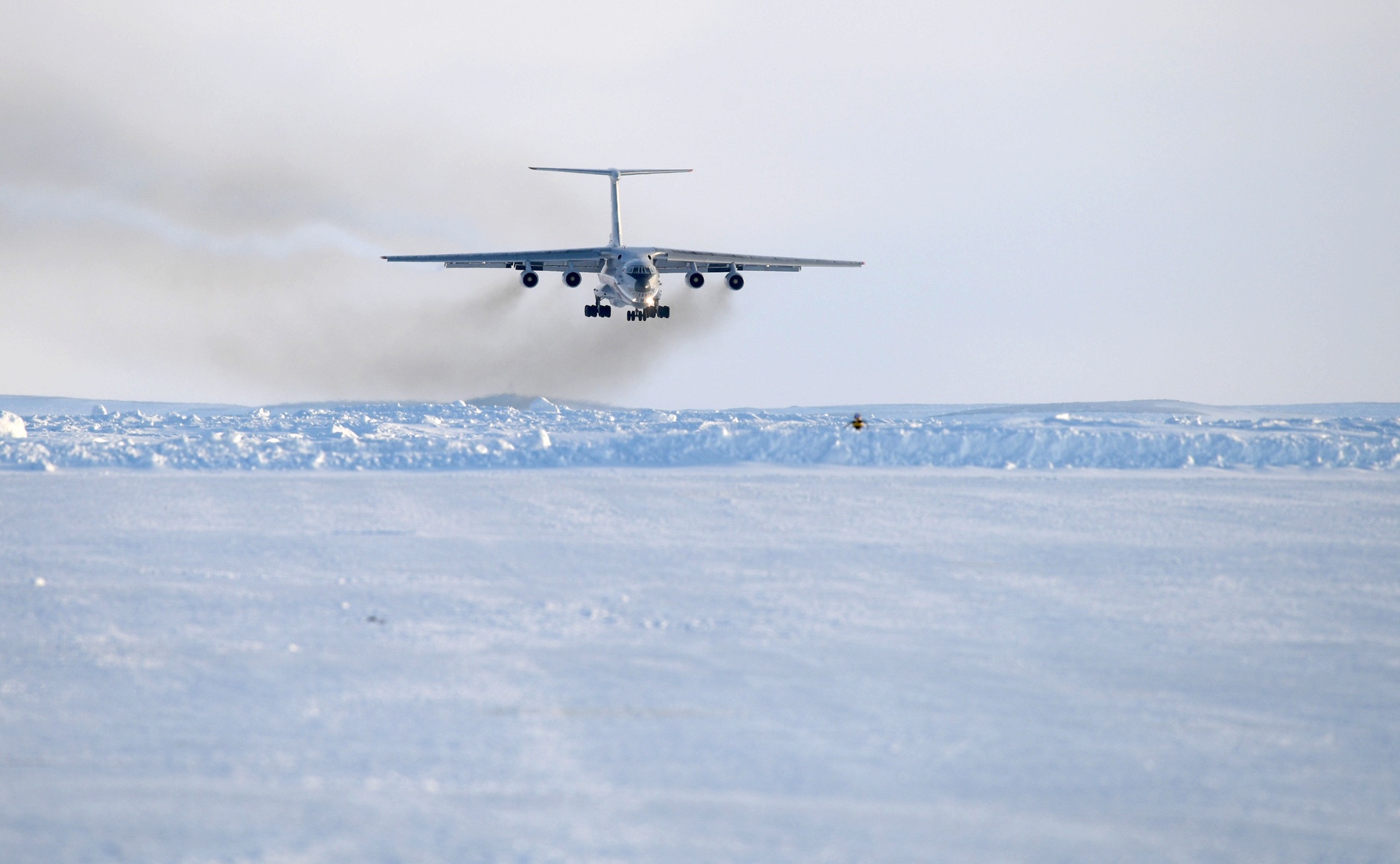
- This event has passed.
WORKSHOP: Interdisciplinary Approaches to Changing Arctic Realities – between Cooperation and Conflicting Interests
May 24, 2023 @ 1:00 pm - 4:00 pm UTC+1

Foto: Vladimir Putin arriving at Nagurskoye airbase, Alexandra Land, Russia, 2017 © kremlin.ru, Creative Commons Attribution 4.0
Organisation: Nadja Douglas and Sabine von Löwis
The Arctic is a region ‘off the radar’ but increasingly in the spotlight because of the climate crisis and the war in Ukraine. Due to the melting of Arctic ice, new sea routes are becoming more important and new geopolitical actors are claiming interests, while the Arctic Council is temporarily suspended.
In the context of this workshop, we seek an interdisciplinary approach to the region with the goal of exploring the diverse possibilities for cooperation as well as pointing out the many existent and looming conflicts of interest. The focus is on security, ecological and anthropological aspects.
Key questions to be pursued:
- How has the Russian war in Ukraine affected circumstances on the ground and international cooperation on Arctic topics?
- Is the status quo sustainable in terms of imminent security threats as well as risks to the environment and the livelihood of Arctic (indigenous) communities?
- What potential is there – despite all challenges – to continue engagement in transnational cooperation in and around the Arctic? Are economic/commercial activities more promising than finding joint solutions for man-made problems? What role do new actors, like China, play?
The workshop is meant to generate an interdisciplinary exchange and dialogue on both conflictual themes and the prospect for further (transnational) cooperation. Based on the inputs of the workshop we envision to publish a report and would encourage participants to actively contribute to this joint endeavour.
Programme
12:00 – 12:10 Welcome and introductory remarks
Sabine von Löwis and Nadja Douglas, ZOiS Berlin
12:10-12.55 Status quo and current state of transnational cooperation in the Arctic
Inputs by
Heidemarie Kassens, GEOMAR Helmholtz Centre for Ocean Research, Kiel
Aleksandr Sergunin, St. Petersburg State University
Klaus Dodds, Royal Holloway, University of London
12.55 – 13.15 Discussion and Q&A Session
13.15 – 13.20 Short Break
13.20 – 14.05 Arctic as a region of fault lines – perspectives and policy challenges
Inputs by
Christoph Humrich, University of Groningen
Serafima Andreeva, Fridtjof Nansens Institute, Oslo
14.05 -14.30 Discussion and Q&A Session – Concluding remarks
Summary
In the context of Russia passing on the chairship of the Arctic Council to Norway, the online workshop explored the status quo and future of transnational relations in the Arctic. Two panels discussed aspects ranging from scientific cooperation to resource extraction and militarisation of the Arctic and brought together a diverse group of experts on International Relations and Science Diplomacy, Sociology, Geopolitics, and Ecology in the Arctic. The discussions especially highlighted the enormous impact the Russian invasion of Ukraine has had on the geopolitical environment in the Arctic. Apart from personal contacts, scientific cooperation between Russia and the West has completely broken down, which will pose big challenges to data gathering and climate change modeling in the mid- and long-term future. This also applies to joint projects on energy infrastructure and investment. However, Russia has sought to replace these projects by means of engaging in closer relations with so-called “friendly nations” like India or China, which are especially interested in the natural resources of the Arctic. In terms of militarisation of the Arctic, participants characterised the Arctic more as a playing field for signaling rather than actual conflict. In conclusion, the experts painted a rather gloomy image of the future of the Arctic Council under Norway’s chairship and Arctic governance more generally. Much of it will depend on the ability to maintain working-level relations between Russia and the other Arctic nations, which are decisive for monitoring climate threats, maritime safety, preventing military accidents and inclusion of the Arctic indigenous peoples. Here, the West will need to decide strategically which types of cooperation are urgently necessary and what can be sacrificed for political purposes.
